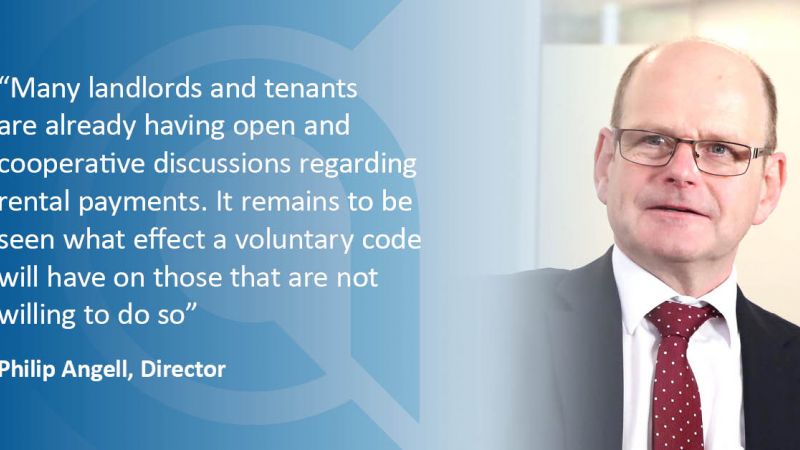Has any support been announced for Landlords?
No. Unfortunately the announcement did not include any support for commercial landlords. UK Finance did however confirm its members’ continued support for commercial landlord customers.
What does the Code of Practice say?
It sets out the principles of how landlords and tenants should deal with each other and promotes transparency and collaboration, a unified approach, takes account of Government support received and requires parties to act reasonably and responsibly. It encourages tenants to continue to pay their rent in full if they are in a position to do so and advises that others should pay what they can, whilst acknowledging that landlords should provide support to businesses if they too are able to do so. The Code sets out possible options for rental payments but states that service charge and insurance should be paid by tenants in full.
Does the Code of Practice alter the legal position?
No, it is a voluntary Code and does not change the legal relationship between landlords, tenants and guarantors.
The new Code of Practice can be found at https://assets.publishing.service.gov.uk/government/uploads/system/uploads/attachment_data/file/893637/Code_of_Practice_for_commercial_property.pdf
How effective do you believe the new Code will be?
Many landlords and tenants are already having open and cooperative discussions regarding rental payments. It remains to be seen what effect a voluntary code will have on those that are not willing to do so, but we suspect it is likely to make little difference in these situations.



